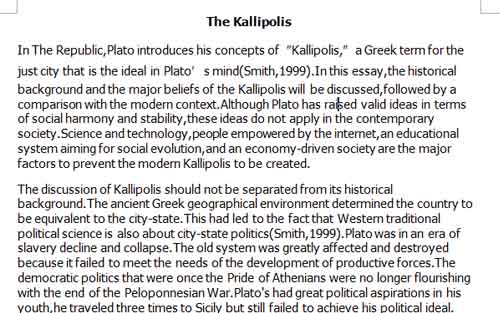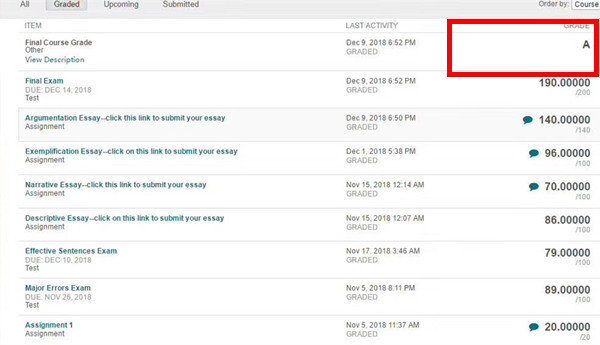本文是一篇关于To Kill a Mockinbird的Essay代写范文,题目为:What role does Boo Radley play in Scout and Jem’s lives and in their development?

What role does Boo Radley play in Scout and Jem’s lives and in their development?
In To Kill a Mockingbird, children live in an inventive world where mysteries abound but little exists to actually cause them harm. Scout and Jem spend much of their time inventing stories about their reclusive neighbor Boo Radley, gleefully scaring themselves before rushing to the secure, calming presence of their father, Atticus. As the novel progresses, however, the imaginary threat that Boo Radley poses pales in comparison to the real dangers Jem and Scout encounter in the adult world. The siblings’ recognition of the difference between the two pushes them out of childhood and toward maturity—and as they make that transition, Boo Radley, their childhood bogeyman, helps serve as link between their past and their present.
在《杀死一只知更鸟》一书中,孩子们生活在一个充满神秘的世界里,但几乎不存在真正对他们造成伤害的东西。斯考特和杰姆花了很多时间编造关于他们隐居的邻居布·拉德利的故事,兴高采烈地吓唬着自己,然后冲向他们的父亲阿提库斯安全而平静的面前。然而,随着小说的发展,与正义与平等运动(Jem)和童子军(Scout)在成人世界遭遇的真正危险相比,布·拉德利(Boo Radley)所构成的假想威胁显得微不足道。兄弟姐妹们对二者差异的认识将他们从童年推向成熟,在他们做出这种转变的过程中,他们童年时代的恶魔布·拉德利将他们的过去和现在联系起来。
The games and stories Jem and Scout create around Boo Radley depict him as a source of violence and danger. However, though these inventions seem designed to prove the children’s braveness and maturity, they paradoxically prove that Jem, Scout, and their friend Dill fundamentally remain children. Their stories are gruesome, and the thrill of their games—such as touching the side of Boo’s house—comes from the danger they imagine they would face if Boo were to catch them. However, the children are able to indulge in wild imaginings and take what they perceive as risky chances only because they feel completely safe in the care of Atticus, who protects them from a dark, dangerous world. The threatening, menacing Boo thus remains firmly entrenched in their childhood worldview, where adults are infallible and all-powerful.
When adult protection breaks down in the novel, Jem and Scout get their first taste of true danger, which is different from the imagined dangers they’d attributed to Boo Radley. The fire at Miss Maudie’s, Mrs. Dubose’s grisly death, and the violence and unrest that trails in the wake of the Tom Robinson case introduce real misfortune and anxiety into their lives. For the first time, adults are frightened and sad along with the children, and therefore cannot be counted on to provide security or refuge. Boo Radley, once such a threatening presence, now seems like a remnant of a more innocent time. The contrast between then and now seems all the more stark because Boo Radley remains in their lives, a constant reminder of how things had been before.
Faced with real dangers, Jem and Scout must tap into new levels of maturity in order to deal with tragedy, new social challenges, and increased familial expectations. As their relationship with Atticus and the larger adult community changes, their relationship with Boo changes as well. Once just a creepy, mostly abstract figure, Boo begins playing a more active role in the children’s lives, first by protecting Scout with a blanket during Miss Maudie’s fire and then by protecting Jem and Scout from an attack by Bob Ewell. Boo had been an integral part of Jem and Scout’s childhood, and, in the midst of their burgeoning adulthood, he serves as a link between their past and their present. Once an imagined enemy and a source of perceived danger, Boo transforms into a true friend and ally, helping them at crucial moments in their transition from childhood to maturity.
The children’s early perspective of “danger” centered on Boo Radley, and only by understanding the contrast between these imagined dangers and the real dangers of the adult world can they pass from childhood into adulthood. But the children’s shifting interactions with Boo points to another element of maturity as well: the capacity for empathy. Once simply an eccentric figure in the children’s games, Boo ultimately becomes a true human being to them—one who has endured more than his fair share of tragedy and deserves his fair share of honor, respect, and affection.
孩子们早期对“危险”的看法以布·拉德利为中心,只有理解这些想象中的危险与成人世界的真实危险之间的对比,他们才能从童年进入成年。但孩子们与Boo的互动也在不断变化,这也表明了成熟的另一个因素:移情能力。曾经在儿童游戏中只是一个古怪的人物,Boo最终成为了一个真正的人,一个经历了比他应得的更多悲剧的人,值得他应得的荣誉、尊重和爱戴。










